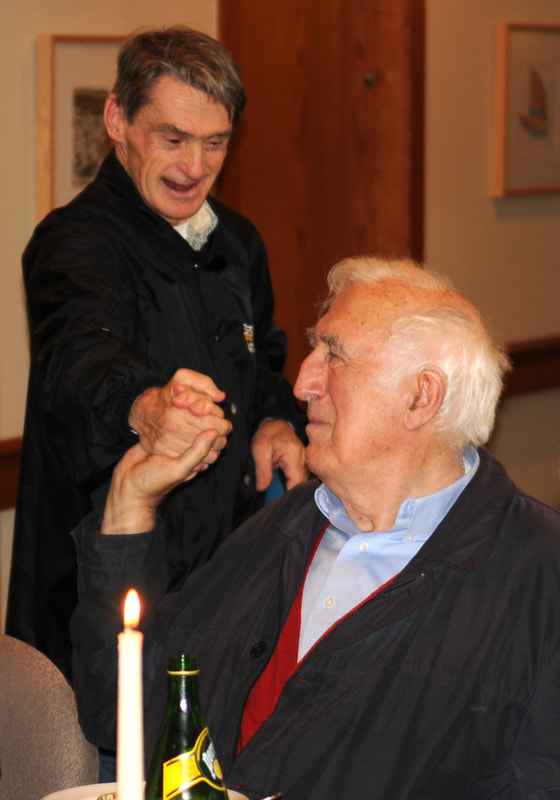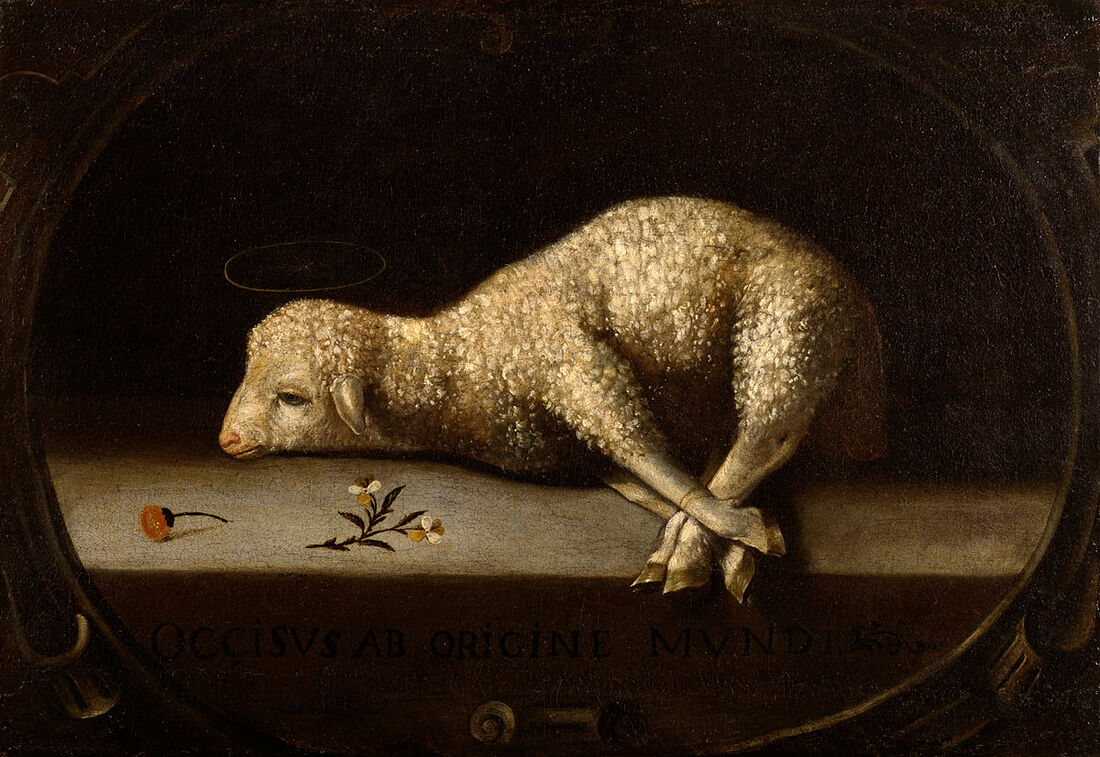Truth is a topic that has been on my mind a lot this year, as the world seems to be careening towards an epistemological precipice, driven closer and closer to the edge by a world filled with lies, propaganda, polarization, and relativism. In a world of such grand illusions, I take comfort in knowing that I serve a God who doesn't merely utilize truth when it's convenient, but a God who is truth always. Yet as we draw closer to our celebration of the Christ's incarnation, I'm left with a bad taste in my mouth in regard to truth, because in some ways, the incarnation seems disingenuous. Does Jesus really embody truth? I mean, literally, does he embody it? Because the way Christian thinking often goes, it seems like in the taking on of a human body, the God-man actually masked the truth. Jesus is divine, glorious, holy, magnificent, and all other good and amazing terms you can think of. But when the Word became flesh, it seems like his divinity and his glory were actually being concealed.
|
Jesus answered, “I am the way and the truth and the life. No one comes to the Father except through me..." (Jn. 14:6). "He committed no sin and no deceit was found in his mouth" (Is. 53:9 / I Pet. 2:22).
Truth is a topic that has been on my mind a lot this year, as the world seems to be careening towards an epistemological precipice, driven closer and closer to the edge by a world filled with lies, propaganda, polarization, and relativism. In a world of such grand illusions, I take comfort in knowing that I serve a God who doesn't merely utilize truth when it's convenient, but a God who is truth always. Yet as we draw closer to our celebration of the Christ's incarnation, I'm left with a bad taste in my mouth in regard to truth, because in some ways, the incarnation seems disingenuous. Does Jesus really embody truth? I mean, literally, does he embody it? Because the way Christian thinking often goes, it seems like in the taking on of a human body, the God-man actually masked the truth. Jesus is divine, glorious, holy, magnificent, and all other good and amazing terms you can think of. But when the Word became flesh, it seems like his divinity and his glory were actually being concealed.
1 Comment
Photo by Watha Suteesopon on Scop.io There is perhaps nothing more central to Christian doctrine than the atonement of Jesus. Jesus is the resurrection, our promise and guarantee that we will one day be raised to new life. Paul declared that if Jesus is not raised from the dead, then we have no hope. John tells us that Jesus is the atoning sacrifice for our sins, and we know that this sacrifice is vital for our peace with God. Whether a Christian adheres to a Christus Victor model of the atonement, a ransom model, or a Penal Substitutionary model, most Christians believe that the atonement of the Christ procured some actual thing - pardon of sin, peace with God, liberation from Satan, etc.
My goal in this short essay is not to deny the idea that Jesus procured some immediate thing with his atonement. However, I do want to push back against what I believe is an extremely harmful notion many hold in regard to the death of Jesus - the notion that his death absolutely had to procure something in order to be worthwhile. Some Christians understandably want to protect the importance of Jesus and his work, and they believe that a theology such as the Moral Influence Theory of the atonement undermines the work of Jesus. This MIT declares that Jesus didn't owe Satan or God anything, but died only as a positive example for future Christians. Such a notion is abhorrent to many Christians today who believe that the MIT would take away the power, importance, and necessity of Jesus's work. While I don't adhere to the Moral Influence Theory alone, I do think that moral influence is an extremely important part of the work of Jesus. Unfortunately, because so many Christians want to protect one facet of the atonement which they think is central, they are willing to pendulum swing and deny the importance of the moral example Jesus was setting for us in his work of cross. It is my goal in the rest of this piece convince you of the importance of holding moral influence as one vital facet of your atonement theology. John Vanier, co-author of "Living Gently in a Violent World." For most of my life I found the story of Adam and Eve perplexing for a number of reasons. Beside the talking snake, the seemingly silly command of God not to eat from a tree, or the woman being made out of Adam's rib - one of the most puzzling elements to me was our forebear's first response to sin. The first response wasn't to hide, to repent, or to run. Their response was a recognition of their nakedness. Talk about a weird story. But as I've learned more about the Bible, I have come to recognize that these odd details are often some of the most important details, because they indicate something profound. Such is the case with the nakedness of Adam and Eve.
Most Christians, and those who live in "Christian societies" are familiar with the ten commandments. Don't steal, don't murder, don't covet, etcetera. But the ten commandments are just a small representation of the Bible's laws. You may not know that the Old Testament actually contains over 600 laws for the people of God to follow. In the New Testament, Jesus does us a favor and condenses all of the laws to two: love God and love your neighbor (Mt. 22:34-40). If we simply do those two things, then we'll never break any of the other 600 commandments. If we loved others, how could we murder them? If we loved, how could we covet what another has instead of being happy for them? If we loved God, how could we choose to avoid Him by not gathering together with other Christians to worship Him? Love is absolutely central to the Bible and to followers of Christ. In fact, Jesus tells us that it is a Christian's love which will distinguish them as a true follower of God (Jn. 13:35).
"*Jean Claude! *Fran!" I yelled through the cold, morning air. I was yelling because my voice needed to travel through the haze from the still smoldering campfires and all the way through the slats in the small, wooden shanty to the seven occupants who resided inside. Without a door on the shack and with only blankets for windows, I didn't need to yell all that loudly for them to hear me. But my voice was the "doorbell" to make my presence known, and I wanted to ensure that I was heard. I didn't want any of my future visits to end up like my first, unannounced visit, when *Sam, Jean Claude's older brother, took me into the shack while the rest of the family were all still huddled in the same bed trying to keep warm.
|
*The views and ideas on this site are in no way affiliated with any organization, business, or individuals we are a part of or work with. They're also not theological certainties. They're simply thinking out loud, on issues and difficulties as I process things.
Categories
All
|








 RSS Feed
RSS Feed